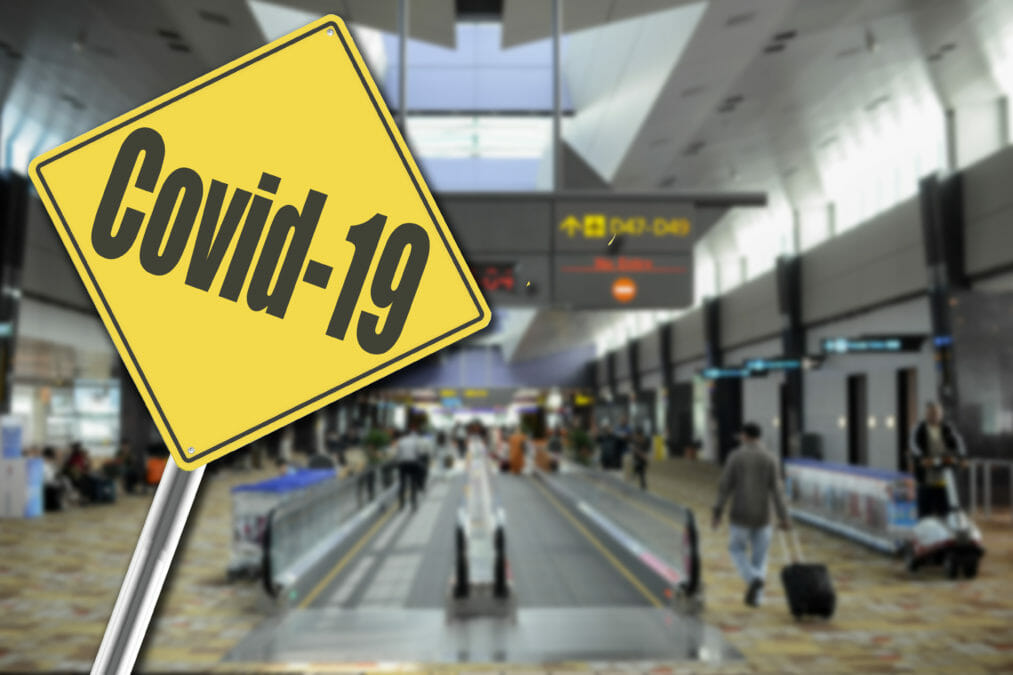The Covid-19 pandemic had a ubiquitous effect upon every nation and every industry, and it seems no sector is free from its impact, although one we can all recognise as being impacted more than most is the travel sector.
With the pandemic this year forcing most businesses to suddenly adapt to some kind of remote working, the need for digital transformation has grown significantly. In the travel sector, we’ve seen flights grounded around the world, shipping halted, and road transport disrupted permanently, which has brought tourism to a standstill. This has had a direct impact on all other parts of the travel sector, affecting consumers, sector workers, business, and the global economy. Airlines alone are expected to lose $84.3 billion in 2020 for a net profit margin of -20.1%. Revenues will fall 50% to $419 billion from $838 billion in 2019, as per the International Air Transport Association (IATA) announcement in early June.
Covid-19 and digitalisation: 4 areas of tech set to boom post-pandemic
While the disruption caused significant problems, it also presents us with the opportunity to sit back for a moment and take stock so that we can plan better for the future. Recovery, and its pace, cannot be predicted for the airline industry at the moment, however we can attempt to draw scenarios for demand and piece together a proactive strategy based on scenario planning.
Preparing for arrivals and departures
As businesses around the world begin to reopen, fewer resources will be available, and a new operating model to minimise contact will need to be considered and deployed. The long-term measures that airlines must consider taking include increasing the digital footprint for customer-facing processes, and moving from a capex to an opex scenario, with higher adoption of cloud computing. Artificial intelligence (AI) has the potential to provide both economic and sustainable pathways for the travel sector moving forwards, with the following AI enabled techniques examples of this:
• Computer vision can be used to analyse safety measures and crowd control. It can also be utilised for authorisation, authentication and check-ins. Some airlines have been using biometric boarding. We have the ability to have thermal scanners integrated into a central database for immediate response and contact tracing. In addition, video surveillance, combined with thermal scans to tie biometrics with risk identification, can also be utilised.
How much do behavioural biometrics improve cyber security?
• Improvements to operational efficiencies, with generational algorithms, from initiatives including advising pilots of fuel-efficient ways of flying, to tuning the HVAC systems in buildings to reduce energy spends; from changing the way travellers board the aircrafts, to how they use toiletries in their hotel rooms, all of which can reduce pressure on staff, while adhering to safety-guidelines, loyalty-tiers, and personal preferences. Next generation predictive analytics services and solutions help you harness the power of big data without exhausting your human and infrastructure resources.
• Virtual operations and going handsfree, focusing on reducing the cognitive load and enabling collaboration for the remote workforce. Solutions provide cognitive agents for digitising contact centres and self-service options on mobile apps. There has been rapid evolution in the cognitive/voice space, and these solutions are far superior to what they were barely six to 12 months ago. Another area that can be a critical intervention for the airline industry, and which has seen several magnitudes of improvements, is a centralised command centre for virtual operations for load planning, airport operations, etc. AI can also be leveraged to quickly rewire the current physical interfaces to touch-free, gesture-based or voice-activated interfaces.
• Going paperless sounds elementary, but the industry still uses paper-based processes in abundance. Many of these can be rapidly automated, given there has been a sudden increase in sophistication and willingness to use the process automation tools. Many of these need little or no software development experience, thereby making it ideal for a ‘citizen developer’ – a user who creates new business applications for consumption by others using development and runtime environments sanctioned by corporate IT.
Embracing new routes and destinations
In a survey conducted last year on AI readiness, surveying 650 IT leaders in the UK and US, data showed 51% don’t yet understand the data infrastructure needed to implement AI at scale.
The data shows 27% of travel and transport providers across the UK and US haven’t trialled any type of AI technology, and 21% haven’t fully deployed AI in their business. This means there is an incredible opportunity for increased operational efficiency within the travel industry if it can embrace AI more readily as the world transitions into a future beyond Covid-19.
The role of AI in fighting fraud during Covid-19
Currently, almost all AI projects are for singular use cases, limiting the return on investment they’re seeing for each application. From research gathered, we found fewer than one in five businesses in the UK (17%) and US (14%) focus on the business pain points before integrating AI solutions. This knowledge gap widens as 34% of UK business decision makers and 19% of US decision makers understand technologies in theory, but not how to apply them in a way that benefits their businesses specifically.
While 35% of US businesses and 27% of UK businesses say they’ve gained a lot of business value from trialling and implementing different technologies, this indicates that more could be done to make the most of this technology.
Those in the travel industry who use these technologies to help customers through these difficulties in times of need will be the ones who see their customers come back time and again. Not only can technology like AI increase demand, adapt at speeds quicker than human counterparts, and drive revenue, but they can also be deployed to save businesses considerable financial losses by providing solutions to problems that prevent failed service deliveries which end up as full refunds.
AI can be used for a plethora of uses, including fleet and operations management, disruption management, customer service and retention, autonomous machines and services, recommendation engines, price forecasting, and many more. Success with AI is simply a matter of experimentation combined with organisational agility and the right skills. The possibilities are endless, but hope cannot be a strategy; if travel sector businesses are to succeed beyond Covid-19, they need to plan for customers, and expediate recovery in a sustainable fashion.











